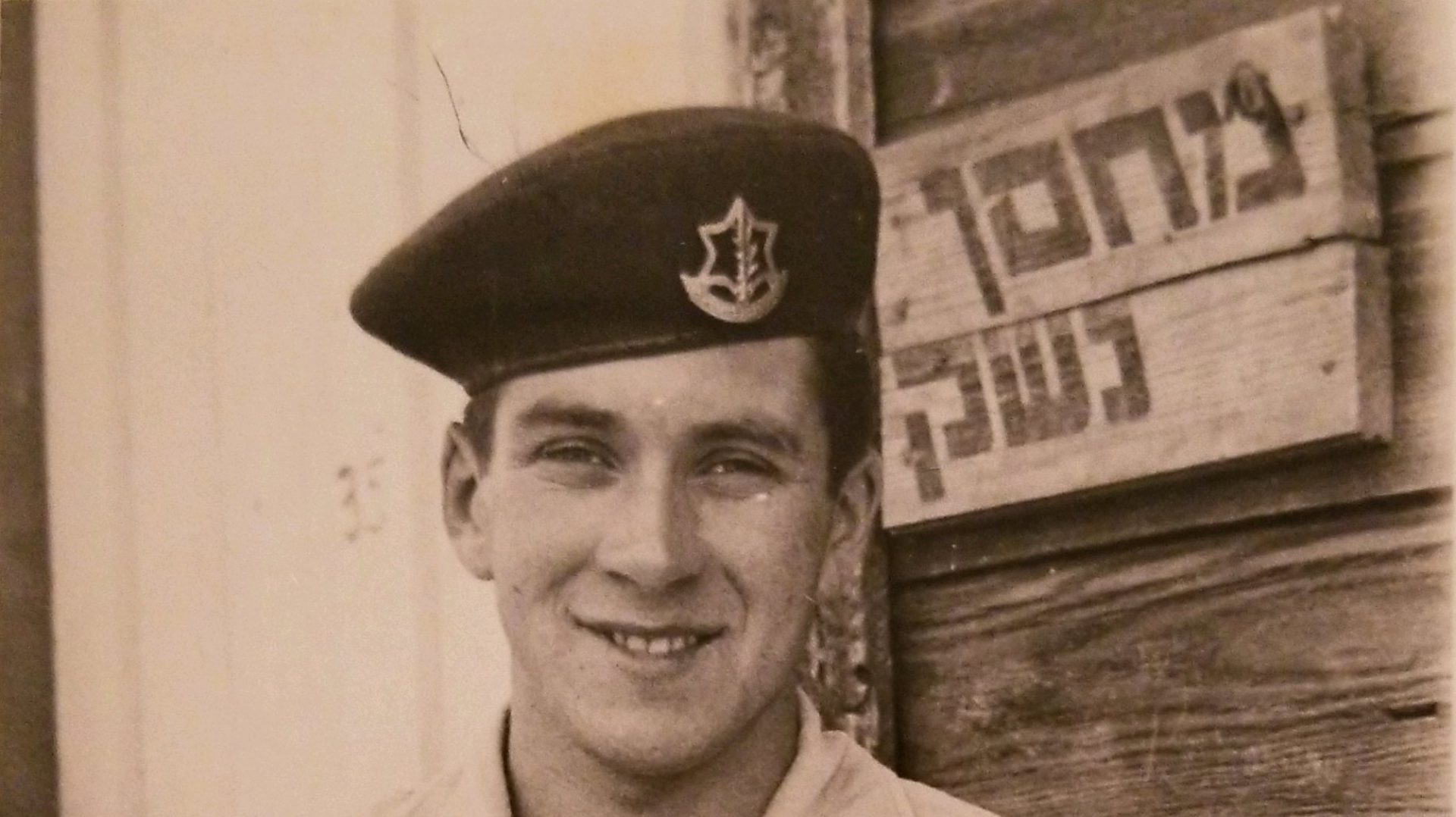In his later years, Shlomo Biezunski was an active member of the Jewish Federation of Northern New Jersey. Below are images captured during events hosted by the Jewish Federation.
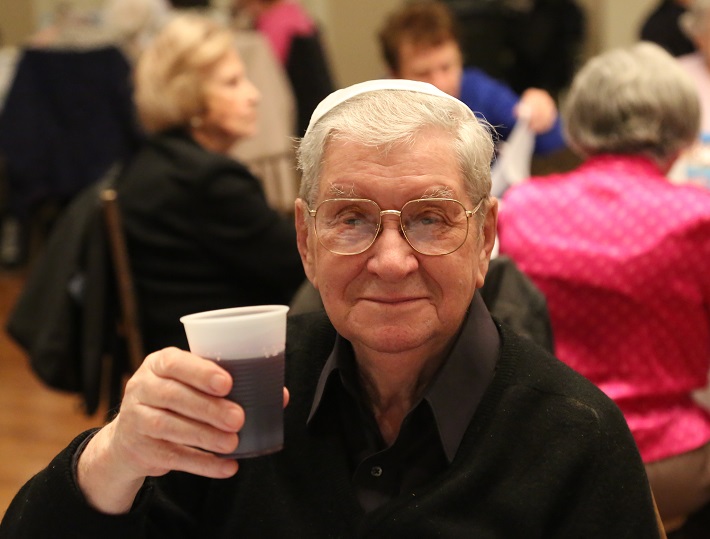
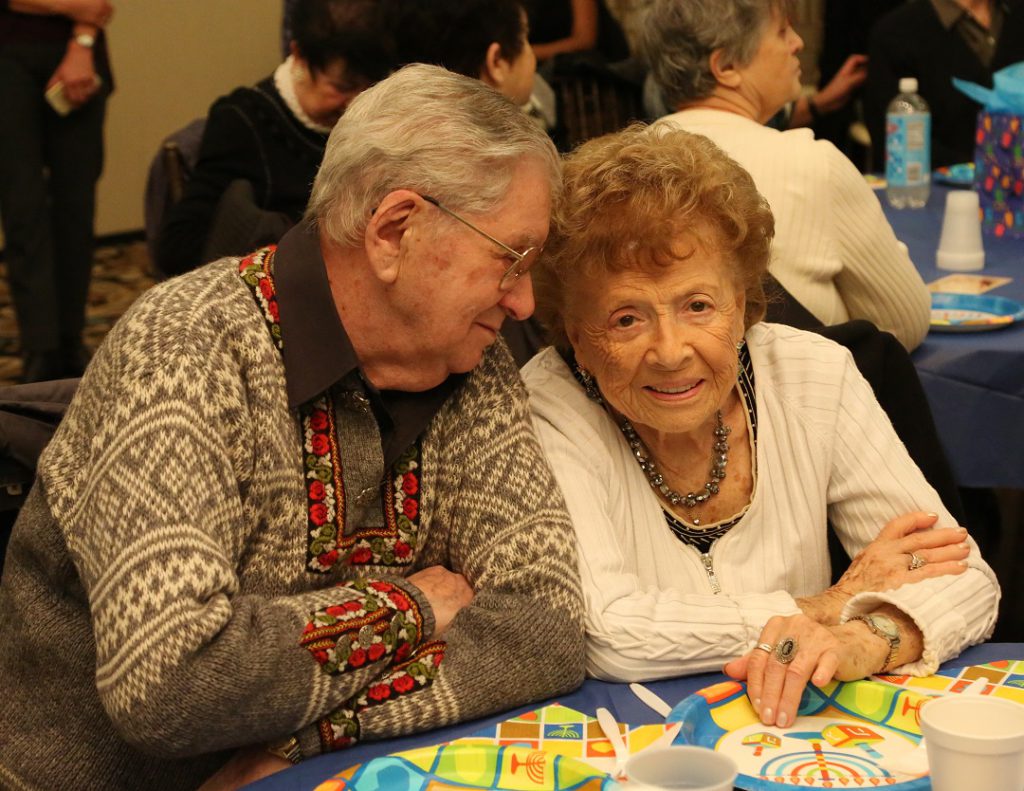
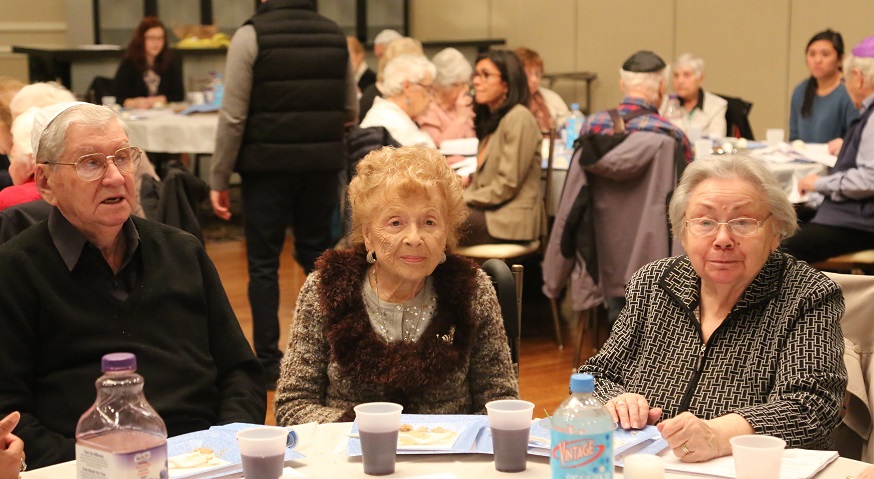
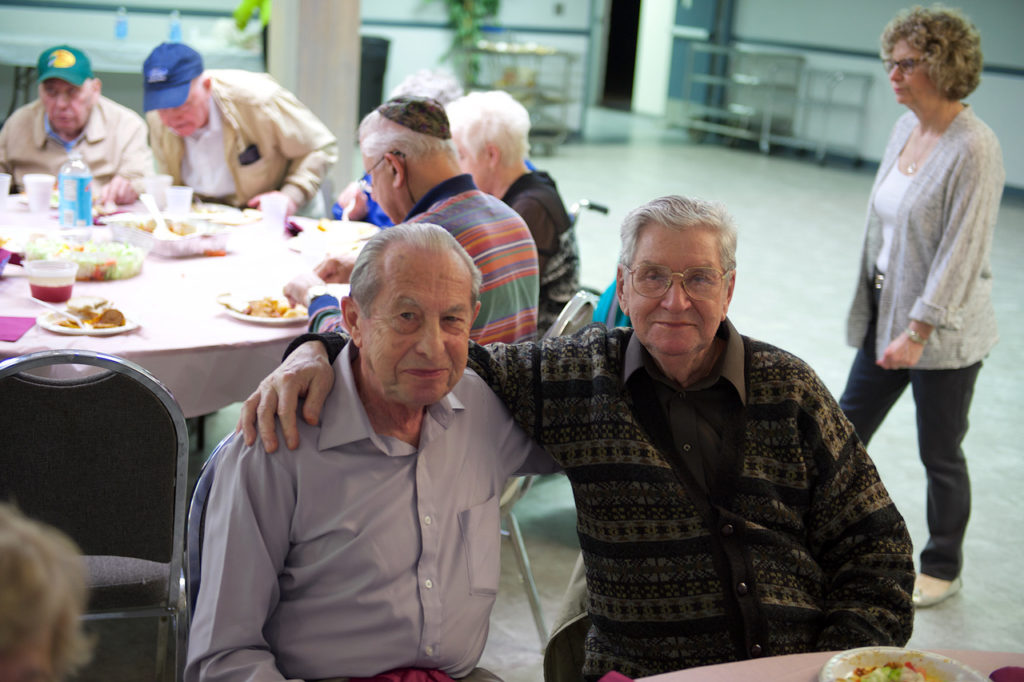
In 2016, Shlomo attended a Holocaust Remembrance Event hosted by the Jewish Federation.
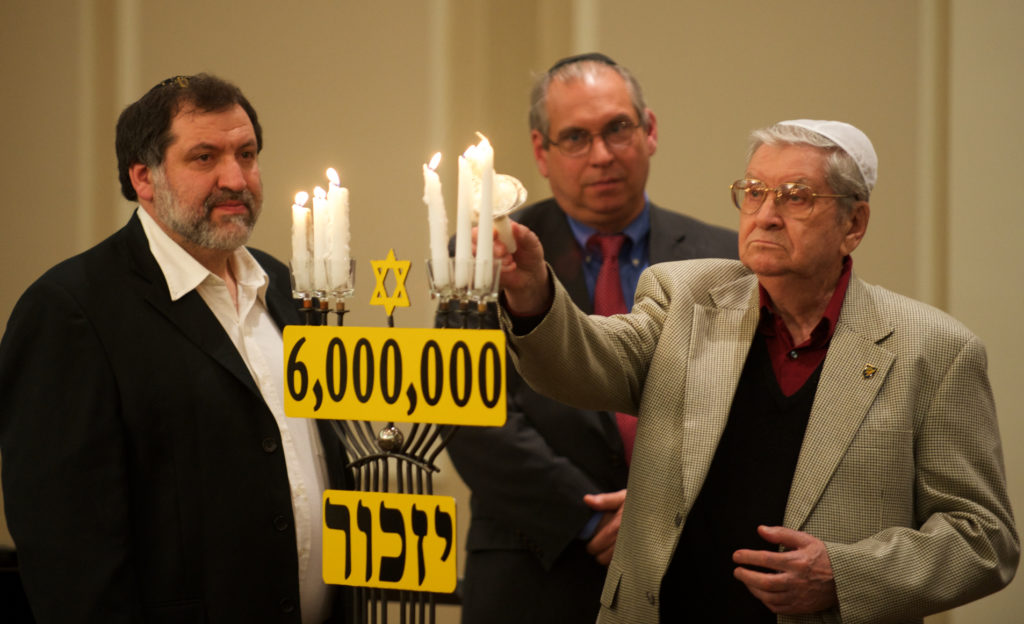
May 2016
Shlomo Biezunski
I was born Salomon Biezunski in Lodz, Poland on May 13, 1926. My parents, Moshe and Perel, owned a cosmetic store that carried men’s and women’s accessories. The store was on the street level of a large building where we lived on the third floor. My grandparents also lived in the building. My sister, Manya was 6 years older than me. She attended public school and then secretarial school. I attended a private Jewish school and expected to go to gymnasium until the war interrupted my plans.
Prior the war, there was not much anti-Semitism. Lodz was a diverse textile center with well- organized unions offering good benefits. On September 5, 1939, the Germans marched into Lodz. Everywhere we saw big placards saying to greet the German army. I was 13 years old and went out to watch. I was astounded. It was unbelievable to see all of the motorized machinery and manpower. The Polish Army had only horses.
In early 1940, my father was taken off the street and never seen again. Across from our store was the Hotel Polonia, which became Nazi headquarters. My mother now ran the store and many Nazis became frequent customers. She decided to liquidate the inventory for the cash needed to buy supplies for our family. She had a shoemaker make pockets in our shoes where we hid gold coins which my mother used to barter.
In May, 1940 the Nazis came and the ghetto was established. My mother, Manya and I were sent to the Polish section were there was open land and free standing houses. We were given one room with a stove in the center. I worked in a metal factory learning to operate a lathe. Manya was a secretary in a women’s clothing factory. My mother worked in a factory that made the straw coverings German soldiers wore over their boots. We were constantly hungry. We were able to grow some vegetables. Each week we received a loaf of bread, brown sugar and oil.
We were in the ghetto until it was liquidated in August 1944. We tried to hide but there were guards everywhere. We carried what we could to the train station. They gave us bread and a head of cabbage. We were on a train for 3 days before we reached Birkenau. The men and women were separated. It was the last time I saw my mother and Manya.
We were lined up and stood for 8 hours. Those who fell died on that spot. Those who survived were given soup. All my clothes were taken except for my shirt and a belt. My head was shaved and my mouth examined for gold fillings. Number B6901 was etched on my arm.
Later, we were assembled and stood naked as we were inspected by the commandant, Max Schmidt, and a civilian engineer. Their theory was that if your body was fleshy you were fit to work, but if you were just bones, you were sent to the crematorium. The SS guard said I was not capable of work. But the engineer was looking for workers for a machine shop by a new coal mine in the Furstengrube sub-camp. He asked me my trade. When I replied I worked on a lathe he said he could use me. He was my ticket to life.
At Furstengrube, we were a group of 25 among 1200 prisoners. I could not work in my clothes which were too big and my wooden shoes. I received a striped uniform, an extra shirt, Bata shoes, and a proper apron. I wore a red and yellow Jewish star on my shirt.
One day while I was working on a big plate, my apron covered the star. Schmidt asked if I was Russian. He was surprised that a Jew, so young, could be a specialized worker.
We walked 1⁄2 mile each way to the factory. In the morning, we had coffee and soup for lunch. We were given bread three times a day. It was like manna from heaven. During the 4 years in the ghetto, we had not seen bread. I divided it, eating bits throughout the day. It brought me back to life.
In January 1945, the Russians we approaching Auschwitz. We were marched to a sub-camp, Gleiwitz. Fortunately, I had my warm blanket when we were put in open train cars to go to Germany. We took a circuitous route through Czechoslovakia where people dropped water and food to us as we passed under trestles. We arrived in the Hartz Mountains at Dora-Mittelbau.
Max Schmidt had come with us, keeping us all together. We marched to Halberstadt and Magdeburg on the Rhine River where we boarded a barge to Lubeck on the North Sea. Schmidt had brought us here because it was where his family lived. They had a farm in Arensbeck. We prisoners shared the barn, half and half, with the SS who were guarding us. Schmidt and his wife stayed in the main house with his parents. The guards would offer the local farmers prisoner labor in exchange for food. One guard told me not to run away. The war was ending.
On May 3rd, Schmidt instructed the guards to take us to the German Navy Base. We found the sailors waiting to surrender to the British. Four ships were housing prisoners in Neustadt Bay;
the Cap Arcona, Thielback, Deutschland and Athen. The Athen captain said his ship was full and would not take us aboard. We watched in amazement as the RAF attacked all four ships flying
white flags. They all sank and 7,000 people died. The captain had saved our lives. Later that afternoon, British forced arrived and we were liberated. We stayed on the base which became
a DP camp and were helped by the JDC.
Around the end of 1946, I decided to go to Palestine. I went to the DP camp at Bergen-Belsen and met people from the Hagenah Bricha. My nickname had been Salik. Now I became Shlomo.
I became an organizer, smuggling people to Italy to reach ships leaving for Palestine. In April 1948, France welcomed those wanting to go to Palestine. The Red Cross met us at the border with food and water and helped put us on trains to Marseille. I was asked to stay as an organizer but I said no, I was going. I sailed on the San Antonio Shtyim, through the Strait of Gibraltar, arriving in Haifa.
I was immediately drafted into the army, assigned to the 9th Regiment Negev Brigade. I fought in the War of Independence and the Sinai Campaign. I was on active duty from 1948 to 1950,
and in the reserves for 19 years. We liberated the Negev; Beersheba, Sodom, Abu Gela, Aqaba and Eilat.
I met an army corporal named Bella who worked at headquarters in Ramat Gan. We married in 1955 and had two sons, Ram and Oded. I worked for the Israel Electric Company and then
opened my own tool and die shop.
After the 1967 War, the Israel’s economy was bad. It was during the Viet Nam War. I knew of a company in the U.S. making parts for the war effort. I wrote to the Department of Labor and
immediately received a visa. I came by ship to New York and then to Paterson.
I never worked for that company, but instead at Universal Manufacturing. The foreman suggested I work overtime. I saved enough money to buy and furnish a house in Fair Lawn that was ready when my family arrived in 1969.
After 8 years, I left Universal and worked at Sandvik until I retired. Bella and I had 5 grandchildren. She passed away in December 2012.
Five of my cousins and one uncle survived the war. I light this candle in memory of my family who were murdered in the Holocaust.
After his passing, the Jewish Federation created a touching commemoration to Shlomo’s life. The passage juxtaposes the difficulties Shlomo faced as a young man with the positivity he expressed in his later years.
